OUR Student Ambassadors
OUR Student Ambassadors
OUR Student Ambassadors are a group of undergraduate researchers at UNC who work with the Office for Undergraduate Research to promote a culture of research on this campus. They’re also here to help you! Feel free to contact the OUR Student Ambassadors at the email addresses listed below to ask questions or click here to schedule an appointment with them.
Interested in becoming an Ambassador? Click here.
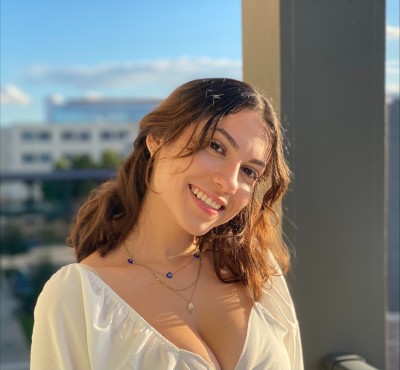
Adriana Retamales Romero
How/Why Research? I’ve always been passionate about the idea of working in a lab and conducting research. Therefore, as soon as I arrived at UNC, I began cold-emailing the PIs of labs that piqued my interest. In terms of my career aspirations, I am planning to enter the industry and focus on drug manufacturing and quality assurance. Consequently, I knew that I wanted to work with something closely related to drug delivery. Utilizing the BBSP database, I discovered labs that were involved in drug delivery and RNA therapeutics and secured a position in my current lab.
Research Experience: In my current lab, I study the use of various carriers, specifically Lipid Nanoparticles (LNPs), for RNA therapeutics. Throughout my projects, I have formulated different mRNA lipid nanoparticles, similar to those employed in the Moderna and Pfizer/BioNTech mRNA LNPs. Additionally, I have conducted research to identify the distinct components that contribute to their stability. My objective has been to establish a correlation between these diverse molecular interactions, responsible for LNP stability, and the uptake of mRNA as well as gene expression in immune cells. Throughout this experience, I’ve been able to enhance my skills in formulating research questions, performing data analysis and broadened my understanding of various research methods.
Student Organizations/Clubs: Mi Pueblo
Also Happy to Chat about: Research in Social Science and/or Humanities.
Random Fun Fact: I’m a huge dog person and I have a Cavalier King Charles Spaniel named Sofia!
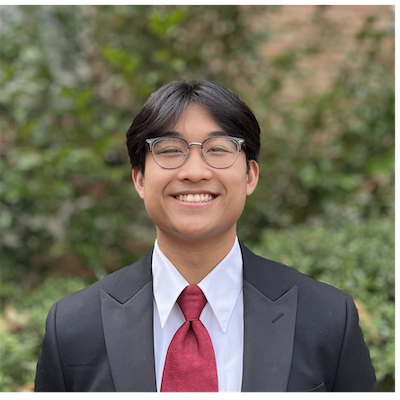
Andrew Phan
How/Why Research? Coming into UNC, I was honestly uncertain of my future goals and where UNC would lead me. Taking NSCI175, an introductory neuroscience course during my freshmen year, I was intrigued by the modern neuroscience research being conducted and was curious to see if the research field was for me. Accumulating advice from others in research and many cold emails later, I began working in the Mei Lab under the School of Medicine where I currently still work. From there, my interest as a researcher has only grown. Please feel free to reach out, and I would be happy to talk more!
Research Experience: In the Mei Lab, I was involved in two projects. The first project was determining the differentiation trajectory of limbal stem cells under homeostasis and corneal wounding. This study identified two different types of putative LSCs and several types of putative LPCs under normal homeostasis and upon wounding, which will facilitate the understanding of corneal epithelial regeneration and wound healing. In our current project, we are tackling dry eye disease by investigating a novel protein and how it affects tear glands in mice. In the Summer of 2023, my intern project at Kriya Therapeutics was on improving the protocol and process of AAV vector transduction toward epilepsy. Next year, I will additionally be working in the Kabanov Lab at the UNC School of Pharmacy, developing novel drug delivery methods for medulloblastoma.
Student Organizations/Clubs: Carolina Scientific Magazine, Vietnamese Student Association
Also Happy to Chat about: Getting Involved in Industry.
Random Fun Fact: I qualified for teen nationals in powerlifting!
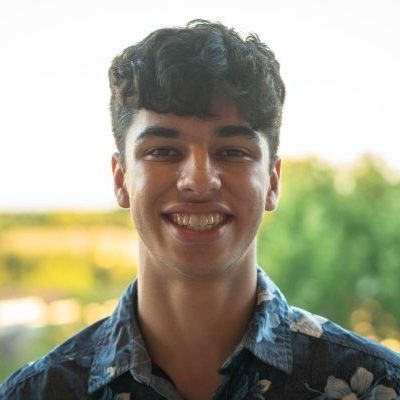
Aryaman Bana
How/Why Research? Gaining an understanding of fundamental molecular processes was always something that interested me. When I came to Carolina, I streamlined my interests, focusing on molecular biochemistry. I reached out to Dr. Erie, whose work in understanding DNA repair perfectly aligned with my interests, and I’ve been with her group since January 2022.
Research Experience: My research in the Erie Lab revolves around using analytical techniques to examine protein conformations and binding. Using techniques such as SDS Page gel electrophoresis, atomic force microscopy, we’re able to characterize the EXO1 protein and its binding patterns with DNA substrates. MATLAB is also used to analyze trends in conformations. My experiences thus far have been invaluable, teaching me critical thinking, experimental design, and problem-solving.
Student Organizations/Clubs: Healthy Hands Initiative, Alpha Chi Sigma Chemistry Fraternity, Chemistry Peer Mentor Program
Also Happy to Chat about: Emailing Professors, Pre-Health Career Path, Talking with Professors, Networking, Fitting Research into a Busy Schedule
Random Fun Fact: I’m a big Miami Heat fan!
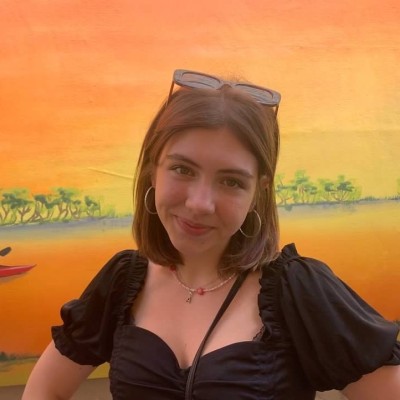
Ava Davis
How/Why Research? I have a neurological condition that affects my vision. With this in mind, I came into UNC knowing I wanted to partake in research involving vision, neuroscience, and low-income communities.
Research Experience: In the fall of 2021, I was a Research Analyst for the Fitting Lab, studying how cellular function is affected by HIV-1 infections and (end)cannabinoids. Also, in the fall, I began as a Research Assistant in the EPIC study, where we are interested in how the brain and body work together to create emotional experiences. Last fall, I started in the AMP lab, and I conducted an independent research project this past spring about how VR experiences compare to the real world
Student Organizations/Clubs: Carolina Neuroscience Club
Also Happy to Chat about: Getting started in research
Random Fun Fact: I am a Diet Coke enthusiast.
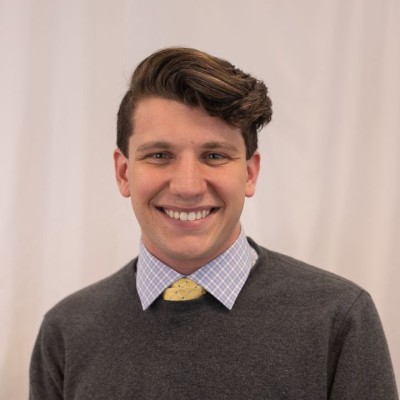
Brendon Brown
How/Why Research? I wanted to get involved in research to explore my interests in chemistry outside of the classroom. I began my research journey when I attended a seminar my freshmen year about how to get involved in academic research, hosted by a group of OUR Ambassadors. I was shown a multitude of resources on how to find and reach out to labs to work in.
Research Experience: My research has focused on the development of a multivariable biofeedback sensor and drug release device that uses hydrogel technology. The goal of the device is to provide targeted drug delivery to bodily lesions while monitoring multiple biofeedback parameters (temperature, blood sugar, pH levels).
Student Organizations/Clubs:NC Fellows, Chemistry Peer Mentor
Also Happy to Chat about: Being out in STEM
Random Fun Fact: I have the best chocolate cake recipe!
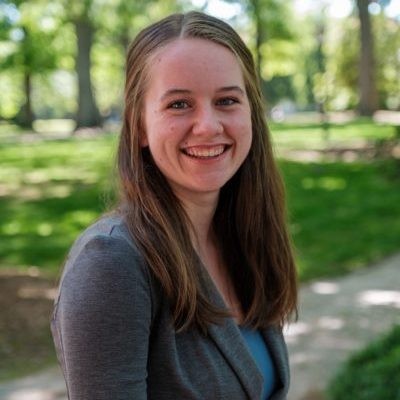
Corinne Drabenstott
How/Why Research? Working in the lab has shown me how the knowledge gained in my STEM courses can directly impact my research, and pushes me to learn more outside of my courses. Going in-depth into a field you are excited about, while also understanding the real-world impact of your work, is incredibly motivating and keeps you coming back to the lab every day. I have enjoyed my work during my research experiences as well as the people I have gotten the chance to work with. In high school, I got involved in the Nguyen Lab through the UNC Young Innovators Program. Then in college, I found the Sode lab by googling biomedical engineering labs with keywords of my interests, reading about the research on their lab website, and emailing the PI.
Research Experience: My research experience began in high school at the Eshelman School of Pharmacy working under Dr. Juliane Nguyen. I conducted experiments on macrophage polarization for cancer therapeutics. In my sophomore year of college, I started a project in the Sode Lab creating antibody fusions with light-sensitive protein domains for biosensing applications. I also started a UNC iGEM (International Genetically Engineered Machine) team. iGEM is an international synthetic biology competition. A team of undergraduate students and I are working together to engineer a hydrogel for wound healing applications. Additionally, in the summer of 2022 I interned at Georgia Institute of Technology in Dr. Todd Sulcheck’s lab. My project analyzed a microfluidic device for designed for cell buffer exchange. These experiences have benefited me in many ways. Not only have I learned many important laboratory skills, I have also gained an in-depth knowledge of cutting edge research, made connections that will foster my career, and built my confidence as an aspiring scientist.
Student Organizations/Clubs: UNC iGEM, Carolina Scientific, STEM Sisters, Biomedical Engineering Society
Also Happy to Chat about: Emailing Professors, Talking with Professors, Networking Fitting Research into a Busy Schedule, Finding Summer Research Opportunities/internships, Mental Health, Study Abroad
Random Fun Fact: One of my favorite things to do is kayaking!
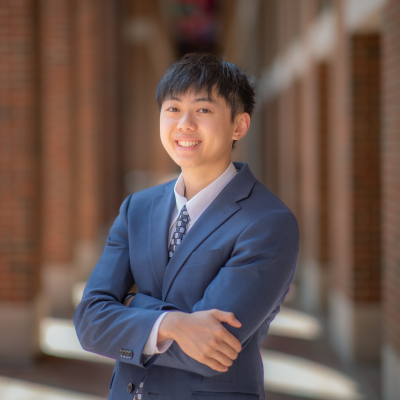
Daniel Zhong
How/Why Research? I have always been passionate about research since the beginning of my Carolina journey. I was part of the UNC Young Innovators Program as a high schooler, and since then, I wanted to contribute to a larger cause of pushing the boundaries of human knowledge to its fullest potential. I got involved in my HIV research by emailing professors and networking with student research ambassadors!
Research Experience: As a research assistant in Dr. Jiang’s lab, I have had the chance to work on several projects meant to enhance the lives of HIV-positive individuals. I was particularly drawn to the HIV-focused lab because of the stigmatization of HIV, especially within the LGBTQ+ community. Thus, my interest in HIV led me to not only dispel many of my own internalized stigmas about HIV but also gain practical skills in the research industry. Working hard to acquire new skills, I advanced my knowledge and laboratory techniques to the brink of their limits, as I wrote my own research proposal for a $5,000 research grant, independently managed my own summer project, co-authored a paper accepted by the Journal of Clinical Investigation, and presented at the 24th Annual Celebration of Undergraduate Research. Research has been incredibly rewarding both academically and professionally, and I hope to share my passion for research with others at Carolina.
Student Organizations/Clubs: Biostatistics Student Association, UNC Climbing Club, UBP Affinity Group for First-Generation Students
Also Happy to Chat about: Emailing Professors, Pre-Health Career Path, Talking with Professors, First Generation Student Experience, Networking, Fitting Research into a Busy Schedule
Random Fun Fact: I love rocking climbing, but I’m scared of heights.
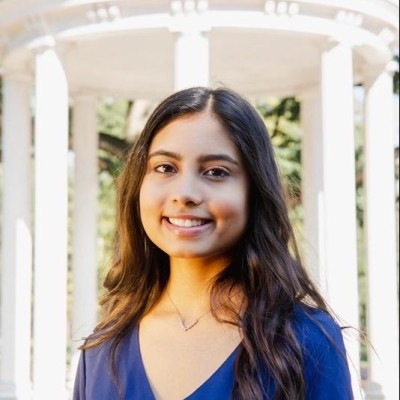
Devanshi Raval
How/Why Research? I attended a Nutrition open house during my freshman year and learned about research work that students in the program accomplished. I was extremely fascinated by one student who worked with Dr.Carroll and the gut microbiome. After reading a few of Dr.Carroll’s papers, I was most interested in learning more about the gut microbiota and its relation to the treatment and prognosis of anorexia nervosa. I emailed him, and he was able to connect me to a grad student in his lab who is working on a project that aligns perfectly with my research interests!
Research Experience: In the year that I have worked in Carroll Lab, I have done some wet-lab work with sorting out DNA samples and PCR prep and data sorting in excel. Learning about a topic that many people don’t know much about and its significant impact on overall health has helped grow my love for my research and nutrition. In fact, joining Carroll Lab is one of the main reasons that I decided to major in Nutrition and helped open my eyes to the public health sphere. Mainstream media has only recently focused on the gut health and how certain bacteria can be beneficial to our bodies. Research opportunities related to the gut microbiota are endless and there are still many relationships between the billions of bacteria in our gut to be discovered.
Student Organizations/Clubs: UNC AMWHO, AKD+DRD
Random Fun Fact: I like to paint with Bob Ross during my free time!
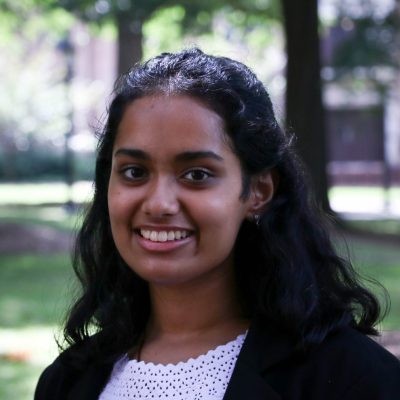
Divya Aikat
How/Why Research? In college, I found my previous lab through the OUR Opportunities Database and my current lab through a cold email to my current PI. I found my internship through summer research listings. Research is a fun way to explore very specific topics in different fields, and create new forms of knowledge.
Research Experience: I have worked as a research assistant in four labs since my senior year of high school, all focused on women’s health, health equity, and public health interventions. My first lab was in the Gillings School of Global Public Health, where I conducted epidemiology research regarding the effectiveness and acceptability of HPV testing methods for marginalized women. I then transitioned to the STAR lab in the Institute for Trauma Recovery in the School of Medicine, where I worked on a study which uses a novel mobile intervention method to attempt to reduce mental health issues for women post-sexual assault. In the summer of 2022, I completed a 10-week research internship for the Equity and Environmental Justice (QUEST) undergraduate training program, in the Institute for Environmental Health Solutions in Gillings. I researched pathways altered by endocrine-disrupting chemicals that may be disproportionately impacting breast cancer risk in marginalized populations. These interests have led me to my current lab in Social Epidemiology at Gillings, where I conduct health equity and trauma research, specifically focused on uterine fibroids and their disparate prevalence and impact in Black women. I will be continuing this research in the summer of 2023, with a SURF grant. This work helps us find the roots of the health disparities that marginalized groups experience, with an equity focus that aims to bridge this gap.
Student Organizations/Clubs: Honors Carolina, Chancellor’s Science Scholars, Biostatistics Student Association, Asian American Center Student Executive Board, Students for Asian American Studies
Also Happy to Chat about: Emailing Professors, Talking with Professors, Networking, Fitting Research into a Busy Schedule
Random Fun Fact: My favorite animals are sloth, deer, frog, and cat.
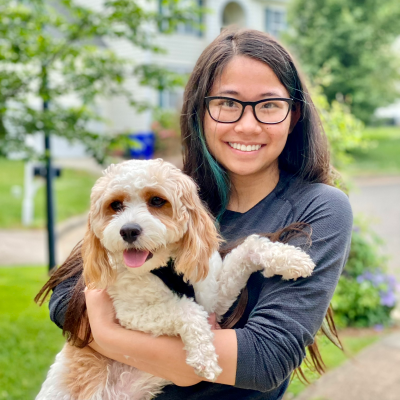
Emily Huang
How/Why Research? I always enjoyed doing math; however, I never knew how applicable mathematics was until I started doing research. In my field, research as an undergraduate seems to be a daunting feat that very few are able to do. To do groundbreaking mathematics research as an undergraduate is almost unheard of. I wanted to break into researching mathematics as both something I’m passionate about, as well as something that would be useful to the world. By emailing various professors I had known, I was invited to sit into Zoom meetings to gain an understanding of the group. Then, I was able to join my current research group. Being assigned a graduate student to serve as my mentor, I was given small projects to work on about the Fast Haar Transform.
Research Experience: My research experience is focused on Fast Algorithms, specifically the Fast Haar Transform. The Fast Haar Transform is a method to speed up analysis of the Haar function exponentially, which is done through the use of a hierarchical organization. Having to create code for this transform, I did speed comparisons between the classic method and the new hierarchical method to prove efficiency. Following a few presentations on my research, I have begun working on other projects, such as methods of optimization. Not only has my research provided me with exposure to the research process, but I am also hoping that the new method can be used in real world situations.
Student Organizations/Clubs: Association of Women in Mathematics, Math Gems, Math Help Center
Also Happy to Chat about: Balancing mental health with a heavy academic workload and research.
Random Fun Fact: A streak of my hair has been almost every color of the rainbow!
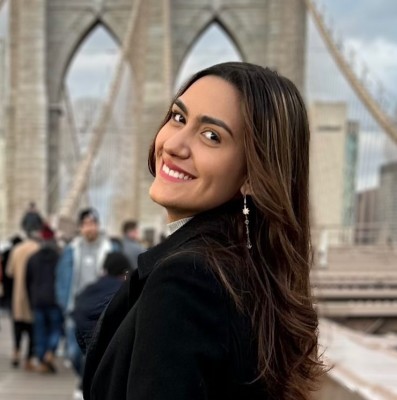
Hannah-Marie Santos
How/Why Research? Since I enrolled in UNC, I knew I wanted to start in research as soon as possible. I wanted my first week of classes at UNC to also be my first week in a lab setting! I was introduced to my PI the summer before my first semester at UNC through a research workshop that was held, and I cold emailed my PI! Afterwards, I was invited for an interview and then was accepted into my lab. Through the next few years, my lab and PIs have been gracious enough to help me learn more about research and graduate school.
Research Experience: During the past summer and year, I’ve been working on a project that develops a next-generation human/mouse chimera. I characterize the model by analyzing human markers in mouse tissues using immunohistochemistry and immunofluorescence. The project is vital for studying highly relevant pathogens that are only expressed in human models, like HIV.
Student Organizations/Clubs: Learning & Writing Center, Handmade by Heels, Chancellor’s Science Scholars
Also Happy to Chat about: Conferences, time management
Random Fun Fact: I love to crochet and scuba dive!
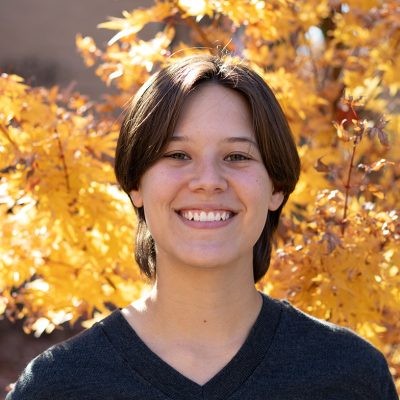
Isabella Gamez
How/Why Research? I was lucky enough to get involved in research through a mentorship program run by my high school. It was absolutely amazing being able to apply my knowledge to real world contexts. Previously, I had focused on hospital epidemiology as a whole, but when I came to UNC, I decided I wanted to focus on the biology behind infections. With that in mind, I emailed several labs early in my freshman year whose areas of study interested me and heard back from my current PI. After being invited to an interview, I was placed on a project with a post-doc as my mentor and have assisted with her research since.
Research Experience: Phase variation is a mechanism that allows bacteria to produce phenotypic heterogeneity through an invertible ON/OFF switch upstream of a gene. At the Tamayo lab, I have worked to characterize two phase variable genes, pdcB and pdcC, and the effect of these switches on phenotypes like swim motility and biofilm formation. This largely involves work at the lab bench like PCR, transformation and conjugation, and swim/surface motility assays. I have been able to learn about a variety of research methodology and problem solve through tricky experiments. Additionally, I have had the opportunity to develop my research communication skills by contributing to a paper and presenting at the Celebration of Undergraduate Research.
Student Organizations/Clubs: Carolina Science Olympiad, Out in STEM, Biostatistics Student Association
Also Happy to Chat about: Emailing Professors, Talking with Professors, Networking, Fitting Research into a Busy Schedule
Random Fun Fact: I’ve walked 500 miles across Spain on the Camino de Santiago!
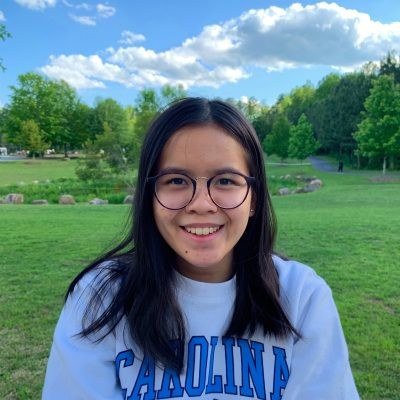
Jackqueline Nguyen
How/Why Research? I got involved in research at UNC to explore my interests in-depth and to expand my knowledge in fields I wanted to learn more about. Throughout my first year at Carolina, I researched the types of research being conducted through UNC department websites and reached out to professors/PIs that were involved with human health and environmental toxins. After a short string of replies, Dr. Timothy Moran agreed to meet with me to talk about the lab’s research, and eventually offered me a research position in his lab!
Research Experience: Before undergrad, I conducted research in the Dempsey Group at UNC where I evaluated the catalytic ability of nickel-based compounds to improve the efficiency of solar energy conversion. Currently, I conduct research in the Moran lab where I investigate how textile dyes commonly used in fast fashion and found in indoor house dust may influence peanut allergy development in children. This research may help identify environmental interventions to help mitigate the risk of allergy development, especially since food allergy prevalence has increased in the last couple of decades!
Student Organizations/Clubs: Chapel Thrill Escapes, UNC Hospitals
Also Happy to Chat about: Emailing Professors, First Generation Student Experience, Networking, Fitting Research into a Busy Schedule
Random Fun Fact: I am an avid bagel and Lego enjoyer.
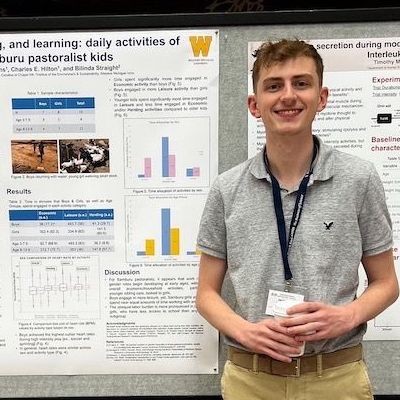
Jackson Plemmons
How/Why Research? I got involved in research because I wanted to explore my interest in performing research and have an experience outside of my comfort zone. I started research after I approached one of my professors in office hours and asked him about any opportunities. I secured funding through the Summer Undergraduate Research Fellowship award offered by the Office of Undergraduate Research.
Research Experience: I study growth and development in pastoralist children located in Samburu, Kenya through both quantitative and qualitive observations. My research aims to understand how young children allocate their time and how much energy they expend performing daily activities.
Student Organizations/Clubs: American Red Cross Club
Also Happy to Chat about: Research in Social Science and/or Humanities.
Random Fun Fact: I love to talk about movies!
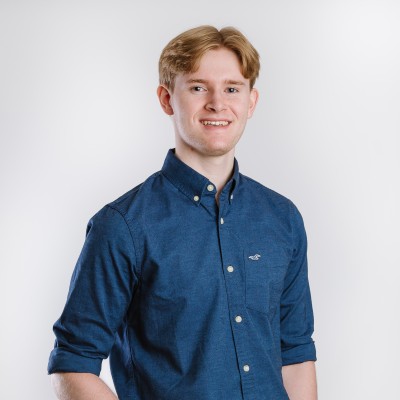
Jake McGillion-Moore
How/Why Research? I got involved in research because it allowed me to be part of neuroscience in a way that advances the field as a whole while also furthering my knowledge of neuroscience. Once I was set on getting involved, I created a collective list of all the neuroscience and/or psychology labs at UNC that were of interest to me. I reached out to all the labs on that list, interviewed, and accepted a spot at the Todd Cohen Lab starting the following semester.
Research Experience: I first got involved in research in high school at the Yale CANDLab, which focused on neural mechanisms underlying the dynamic changes that occur in emotional learning and behavior and the risk for psychiatric illness during childhood/adolescence. I performed ADIS entry, RI entry, WASI-II administration, and REDCap entry coding, and interacted with volunteers in the studies. This gave me a solid background in psychiatric disorders and qualitative research and introduced me to the lab setting within the field of Neuroscience and Psychology. At the UNC Todd Cohen Lab, my research dealt with specific mutations that have been associated with the formation of tau tangles and other indicators of extreme tau pathology in primary neurons and the capabilities to use this pathology as a platform for further testing and investigation. This was a significant step up from my previous lab position in terms of complexity and required developing my wet-lab skills and familiarity with data analysis softwares.
Student Organizations/Clubs: Consulting Club, Climbing Club
Also Happy to Chat about: Finding out what areas you want to do research in and stepping up involvement in research after getting involved within a lab.
Random Fun Fact: I’m a member of the UNC fencing team!
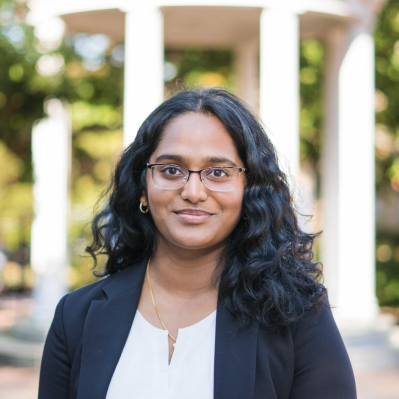
Joe Danica Inigo
How/Why Research? I was introduced to the idea of research through some of my older friends who were engaged in projects during my junior year of high school. The idea of being able to delve into the “whys” and “hows” of science through research was very fascinating to me, and I was eager to be involved myself. During my freshman year of college, OUR workshops about getting involved in research and the guidance of a friend gave me the motivation and resources to be able to start reaching out. Hearing of my research interests, she recommended I reach out to the Schisler Lab, where she had been working for the past couple of years. I emailed the lab manager expressing my interest, received an interview, and have been happily working there since!
Research Experience: While working at the Schisler Lab, I have done wet lab work, including processing mice tail samples, PCR, and microscope imaging, and have learned to perform injections, behavioral studies, perfusions, and dissections on mice. Recently, I have been learning about DTI and fMRI scans to study the effects of the administered treatments on mice. I have always had an interest in disease pathology and related treatments, and my work in the Schisler Lab has allowed me to truly explore this interest. Research on gene-linked diseases is a growing field, and learning about the molecular functions in the body that can manifest into the physical symptoms we observe in diseases is really interesting. Moreover, research within this field can help with the development of treatments and cures for various diseases, such as SCAR16, providing a positive change in the lives of many.
Student Organizations/Clubs: UNC AMWHO, HOSA
Also Happy to Chat about: Emailing Professors, Pre-Health Career Path, Talking with Professors, Networking, Fitting Research into a Busy Schedule
Random Fun Fact: I enjoy trying and experimenting with new foods and flavors!
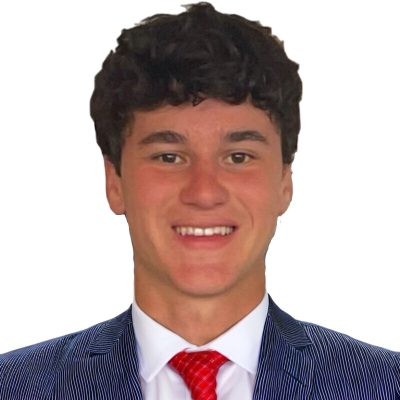
John Boniberger
How/Why Research? I got involved in research because I had a great experience with it throughout my 4 years of high school and wanted to continue my progress at UNC. I got involved by sending cold emails to lab PI’s and talking to professors about any openings on campus.
Research Experience: My research has enriched my understanding of things I’ve learned in class in that I’ve been able to apply concepts in very real-life ways. In addition, research has increased my problem-solving skills and confidence to a point that I can comfortably work alongside graduate students in competent manner.
Student Organizations/Clubs: SACNAS, Health Careers Club, Carolina Covenant Program, Honors Carolina Program
Also Happy to Chat about: How to reach out to research labs and remain resilient.
Random Fun Fact: I’m from Long Island, New York.
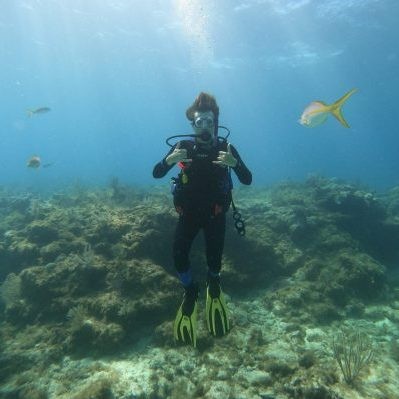
John Hinkle
How/Why Research? When I came to UNC, I knew that I wanted to do “something” in biology, but I was not entirely sure of which direction I would take. In my first semester, I took a marine sciences first-year seminar course with Dr. Martens, and that class inspired me to pursue marine research. I got my current research position by talking to Dr. Teske after one of his guest lectures in a class that I was taking (Oceanography).
Research Experience: In Spring 2022, I joined the Teske Lab in the Department of Earth, Marine and Environmental Sciences. After that semester, I spent three weeks onboard the R/V Endeavor as a part of an oceanographic research expedition with the Arnosti Lab (also in EMES) and international collaborators. Once I returned to land, I was off to the University of Tennessee, Knoxville to work with the Lloyd Lab as a part of an NSF REU program. In Knoxville, I investigated the microbial communities found in Svalbard permafrost. Once the summer was over, I returned to the Teske Lab where I continue to study the microbiology of hydrothermal vents and deep subsurface sediments in the Guaymas Basin. My research experience has allowed me to develop my wet lab (ex. DNA extraction) and computational skills (ex. Sequence analysis).
Student Organizations/Clubs: Tri-Beta Biology Honors Society, Geology Club, Carolina Analytics & Data Science
Also Happy to Chat about: Emailing Professors, Talking with Professors, Networking, Fitting Research into a Busy Schedule
Random Fun Fact: I like to go fly fishing.
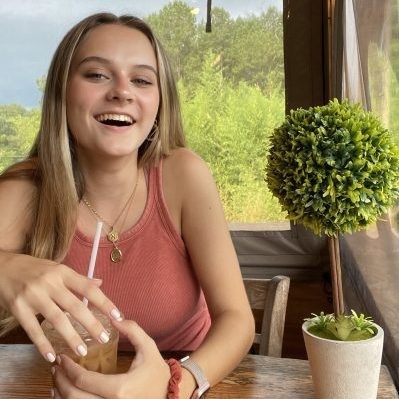
Kendra Honey
How/Why Research? I took a research class in high school and though I still didn’t have a full grasp of what it meant to do research, I knew I was interested. With help from my Accelerated Research Program mentor, I reached out to Dr. Rob Dowen and joined the Dowen Lab the spring semester of my freshman year. I have been working there ever since and have loved every minute of it!
Research Experience: Since joining the Dowen Lab, I have taken two semesters of BIOL 395, one of which I completed after receiving the Summer Award for Research Intensive Courses (SARIC). I have presented at UNC’s Celebration of Undergraduate Research, the State of North Carolina Undergraduate Research and Creativity Symposium (SNCURCS), and have earned the Carolina Research Scholar distinction. My experience in research has not only shaped my career path but also improved my understanding of the scientific and research community.
Student Organizations/Clubs: Accelerated Research Scholars, Carolina Research Scholar, Biology Peer Mentoring
Also Happy to Chat about: Emailing Professors, Pre-Health Career Path, Talking with Professors, Fitting Research into a Busy Schedule
Random Fun Fact: My dream pet is a wiener dog.
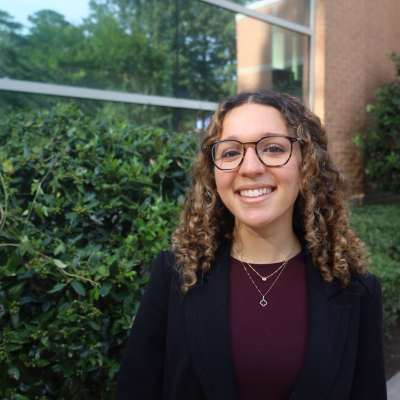
Malak Dridi
How/Why Research? When I first arrived at UNC, I knew it was an R1 institution, but I was unfamiliar of the possibility of social science research. However, I had a strong interest in learning more as to how policy systems can hinder or support underserved populations, which led me to the Office of Ethics and Policy at UNC. I found a passion for research as an intern for the office, and continued to search for opportunities within and outside of Chapel Hill. Now entering my third year of research, I plan to continue engaging in the field in my post-graduate studies. Research provides me with a sense of fulfillment, due to its ability to serve the public and drive actionable change.
Research Experience: I began my research career in the Office of Ethics and Policy at UNC. I was then selected to participate in a National Science Foundation REU program, where I worked with the School of Criminology and Criminal Justice at the University of Arkansas at Little Rock on an 8-week study on hate crimes against Muslims in the South. This past fall, I worked as a legal research assistant at UNC School of Law’s Center for Civil Rights on the Legal Equity and Diversity initiative. This research study looked at disparities between HBCU law schools versus predominantly white law schools. Currently, I’m working as a UNC political science research assistant, on a public opinion survey in Tunisia, that looks at economic satisfaction, democratic disengagement, and religiosity.
Student Organizations/Clubs: Arab Student Organization, Phi Alpha Delta
Also Happy to Chat about: Summer Research Opportunities
Random Fun Fact: I met Jaden Smith in Florence!
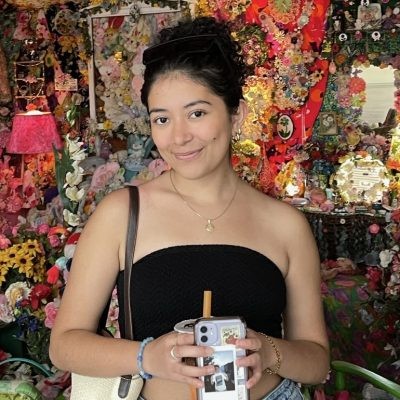
Mariana Chavez
How/Why Research? I got involved with research because I wanted to experience a learning opportunity outside of a traditional classroom setting. I came into UNC Pre-Med, but really undecided, so it took my first-year to really figure out what I was passionate about. After several classes and chats with professors, I found my interests and began exploring them through research. I applied to do work-study at the Cohen Lab right before my second-year and not long after also applied to volunteer at the CIRCLE Lab. I found these opportunities through the JobX portal and by taking time to make a list of labs I was interested in from the department website. Most labs have their own website, which is where I found most applications, interest forms, and contact info.
Research Experience: I do work-study in the Cohen Lab, working there around 8 hours a week which includes training, completing tasks, lab meetings, and attending speaker series. My tasks in the Cohen Lab include things like data entry, MRI quality control, sorting/creating participant folders, and helping with recruitment. In the CIRCLE Lab, I volunteer through the WHALE study and mainly focus on helping run participants(4-7 year old kids) through the different tasks of the study and doing all sorts of data entry. Both of these experiences have given me not only tons of experience but also lots of valuable connections where I’ve learned of different paths after graduation. This summer I will also be doing my own independent research through the Moore Undergraduate Research Apprenticeship Program (MURAP).
Student Organizations/Clubs: Chapel Thrill Escapes, MURAP, McNair Scholars Program, Mi Pueblo
Also Happy to Chat about: Emailing Professors, Networking, Workstudy Opportunities, Fitting Research into a Busy Schedule, Finding/Keeping Track of Opportunities, Intersectional Interests
Random Fun Fact: I love boba!!!
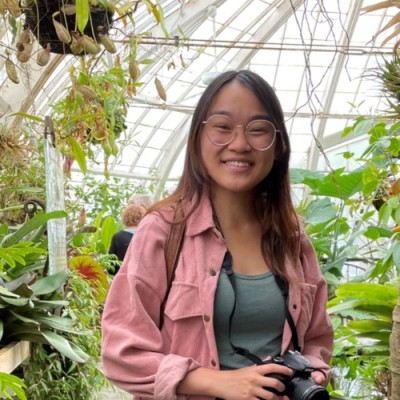
Mia Foglesong
How/Why Research? I was driven to research through my curiosity about why people behave and how our minds work. I got into research by searching through different research labs online that aligned with my different interests that had developed from the social justice work I had been working on in high school through early college. I love the way research helps me become more of a critical thinker, but research to me is my outlet for figuring out the “why” questions.
Research Experience: In Summer 2021, I joined the PEP Lab and spent the majority of my time getting to look into how research can have an intersection with different social topics like COVID-19. In Spring 2022, I completed an independent research project with the PEP Lab on whether nutrition could predict interoceptive awareness in the hope to draw connections to bigger social issues like food apartheid. I joined the QUEST project (within the school of social work at UNC) in the beginning of Spring 2022 looking at the queer identity development process and how it relates to mental health challenges. I joined the Herman Lab in the beginning of Summer 2022. During my Karen M. Gil internship, I interned at Research Triangle Institute International under Dr. Thomas Gamage doing more pharmaceutical research on THC isomers and their binding affinities to the CB1 and CB2 receptor. This summer (2023), I am doing a Summer Undergraduate Research Fellowship project in the Herman Lab looking at cFOS expression in the central amygdala using a novel transgenic mouse.
Student Organizations/Clubs: Women’s Ultimate Frisbee Club, Psi Chi, Nu Rho Psi, UNC Journey, Hospital Volunteering
Also Happy to Chat about: Finding Research Opportunities
Random Fun Fact: I was adopted.
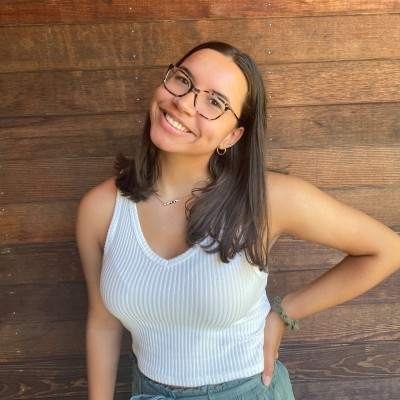
Morgan Watson
How/Why Research? I have always been fascinated with the idea of research in order to answer pressing questions about human life. I became interested in biostatistics because of its diverse applications to public health. My involvement in research was achieved through emailing multiple professors in the field of epidemiology who had research focuses that I also found interesting. I asked to meet to talk further about their research and then followed up with the labs that I was most fascinated by and hoped to work in.
Research Experience: My research involves the analysis of an in-depth multigenerational dataset including information about participants’ demographics, health, neighborhood characteristics, socioeconomic status, and more. We aim to find patterns and connections between social and environmental aspects on someone’s health over their entire life course. I utilize programming languages such as R and SAS to find patterns and work to communicate these results to the general public. This research can help the improvement of neighborhood characteristics to benefit the birth outcomes of the population.
Student Organizations/Clubs: Alpha Phi Omega – Coed Service Fraternity, ScienceDays Mentoring Program, FEMMES Day Camp
Also Happy to Chat about: Navigating professor and researcher relations as a minority
Random Fun Fact: I am a twin!
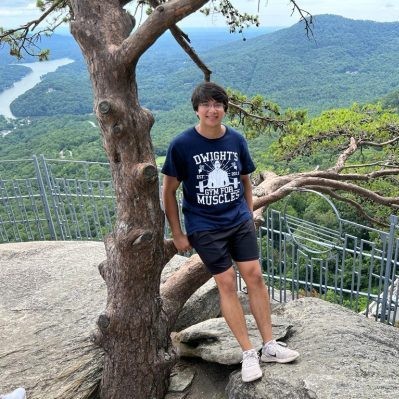
Neil Sud
How/Why Research? I got involved in gene therapy research because of its potential to treat and even cure genetic diseases that were previously thought to be untreatable. The idea of being able to improve people’s lives, especially those who may not have any other treatment options, really motivated me to pursue this kind of research, especially as someone who wants to pursue a career in medicine. I attended various OUR workshops in the beginning of my freshman year where I learned how to network and cold email professors. I cold emailed all the professors who work in the UNC School of Medicine’s Gene Therapy Center, and I was lucky enough to be offered an undergraduate research position. I have now since been involved in the Fu Lab for more than a year.
Research Experience: I was fortunate enough to start research in high school, where I gained brief research exposure in computational biology. At UNC, I’ve been at the Fu Lab for over a year. The skills I’ve gained working there have been invaluable, ranging from developing molecular biology techniques to data analysis to scientific writing. Just this past semester, I completed an individual project through BIOL 395 class credit and am looking to continue it next semester. I was also able to network and land a research and development internship this summer at Labcorp Drug Development where I’ll definitely use the skills I gained at Fu Lab.
Student Organizations/Clubs: Alpha Epsilon Delta (UNC’s pre-health honor society), Carolina Scientific
Also Happy to Chat about: Emailing Professors, Pre-Health Career Path, Talking with Professors, Networking, Workstudy Opportunities, Fitting Research into a Busy Schedule, Finding Research Internships
Random Fun Fact: I used to live in Singapore for seven years!
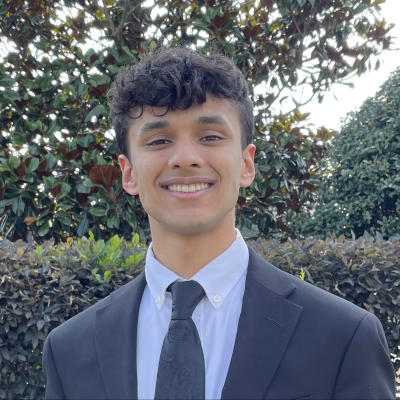
Parth Shirolkar
How/Why Research? I was truly interested to see what the life of a researcher is like, and was keen on contributing to the field of biology, which is what led me to enter the field of research. I first got involved in high school, by reaching out to professors that were involved in research that I was interested in. I used my experiences to connect with professors at UNC, and after a couple interviews, am working at the Scherrer Lab at the UNC Neuroscience Center.
Research Experience: I am currently published in the “Neuroscience Letters” journal for my paper on “The role of TRP channels in pruritus.” I have also conducted an independent research project where I studied the potential of rapamycin to mitigate the negative effects of a high-fructose diet on lifespan. This research allowed me to gain insight and experience in the research world, which has proven to be very useful at UNC Chapel Hill. I am much more familiar with reviewing literature, and know how to record/present data.
Student Organizations/Clubs: Scherrer Lab, Shen Lab
Also Happy to Chat about: Emailing Professors, Pre-Health Career Path, Talking with Professors, Networking, Finding a mentor, Exploratory Majors
Random Fun Fact: I love playing ping pong and tennis.
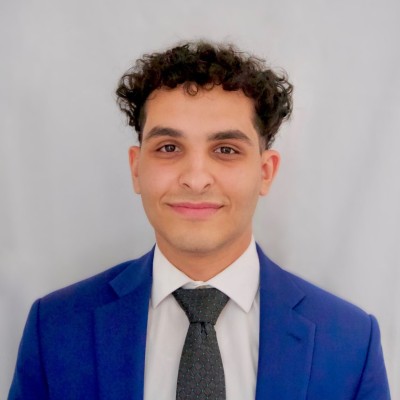
Rami Darawsheh
How/Why Research? My interest in research began during my senior year of high school when I had the chance to work on a research project in Radiation Oncology. While conducting this project, I had the opportunity to interact with guest scientists and gain exposure to the diverse applications of research. When I arrived at UNC, I was amazed by the range of research labs available and their emphasis on interdisciplinary projects with real-world applications.My primary interest is in translational research, which directly impacts patients in a clinical setting. I find that conducting research provides me with a unique opportunity to expand my knowledge through hands-on experience, and there is nothing more rewarding than seeing a project come to fruition.
Research Experience: My experience in research has been diverse, covering projects in the fields of oncology, neuroscience, biology, and radiation oncology. Throughout my academic journey, I have worked on projects spanning from basic science to translational and clinical research. Currently, I am conducting research in the Hingtgen lab, where we utilize a murine brain slice model system to improve diagnostic capabilities for patients with brain cancer. This model offers a more representative view of how cancer ultimately affects patients, with more similar genomic expression, microenvironment, and standardizability compared to functional tests used in clinical settings.
In addition to my work in the Hingtgen lab, I am also involved in conducting clinical retrospective studies in the Department of Radiation Oncology at UNC. Through electronic health records, we are exploring ways to improve outcomes in cancer treatment. Recently, I was selected as a Biological Sciences in Public Health Summer Intern at the Harvard T.H. Chan School of Public Health where I conducted research on the relation between mitochondrial transport and cancer. Overall, my experiences in research have fueled my passion for improving patient outcomes and have prepared me to make meaningful contributions in the field.
Student Organizations/Clubs: Minority Student Caucus, Carolina Boxing Club, Arab Student Organization, Muslim Student Association, Carolina Cancer Association
Random Fun Fact: I like to go fishing.
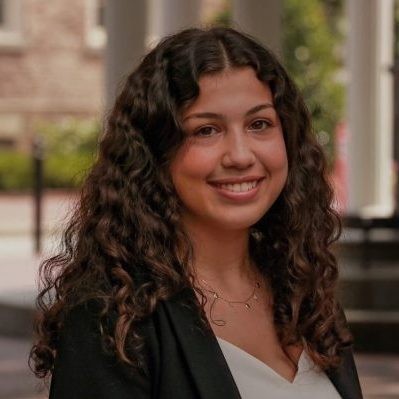
Raseel Jazairi
How/Why Research? I decided to pursue research as an undergraduate because I firmly believe that early exposure to fields of interest can greatly assist students in discovering their true passions, leading to greater success in the long run. Specifically, I joined a neonatal nutritional research lab in January after reaching out to the principal investigator and going through two rounds of interviews to see if I was a good fit.
Research Experience: I research necrotizing enterocolitis (NEC), a severe intestinal disease in premature babies, by utilizing mouse models to better understand NEC’s development and potential treatments. By observing mice with a similar condition to NEC, my PI gains insight into the disease’s mechanisms and is able to explore ways to improve diagnosis, treatment, and prevention.
Student Organizations/Clubs: Arab Student Organization, Tri-Beta
Also Happy to Chat about: Emailing Professors, Pre-Health Career Path, First Generation Student Experience, Networking, Fitting Research into a Busy Schedule, Figuring out/narrowing down the process of finding research one wants to pursue
Random Fun Fact: I have never broken a bone in my body.
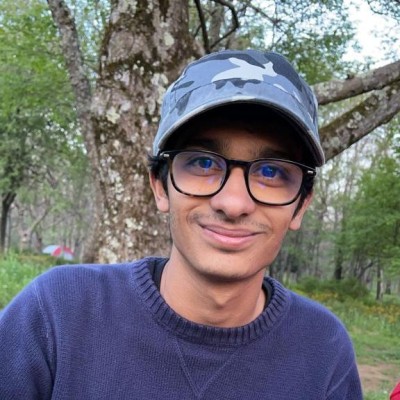
Rohan Udeshi
How/Why Research? I really wanted to get involved in research through my interest in medical Ophthalmology. I wanted to discover how researchers learn and treat ocular diseases apart from how clinical Ophthalmologists treat. I got involved through scrolling through research sites of professors, finding which projects I was interested in, and emailing them. I throughly enjoy my research and it has become a part of my lifestyle!
Research Experience: Through the Borras Lab in the Ophthalmology department at UNC Medical school, I have researched and learned under Dr. Terete Borras, PhD, to create a plasmid gene sequence coated in AAV virus to inject in mice eyes in the hope to lower interocular pressure and treat many ocular diseases such as Glaucoma. In Bower Lab in the Ophthalmology department at UNC Medical school, I research and study uveal melanoma cells and their treatment and impact on ocular tissue. I’ve benefitted greatly from all my experiences learning practical skills and methodology/familarity with lab techniques to add to my research toolbox including: PCR, western blotting and gels, maxiprep and miniprep for gene sequences, Nanodrop, Autoclaving, and SnapGene software!
Student Organizations/Clubs: Tri-Beta Biology Honors Society, Carolina Film Association, Phi Delta Epsilon Medical Fraternity
Random Fun Fact: I love rollercoasters!
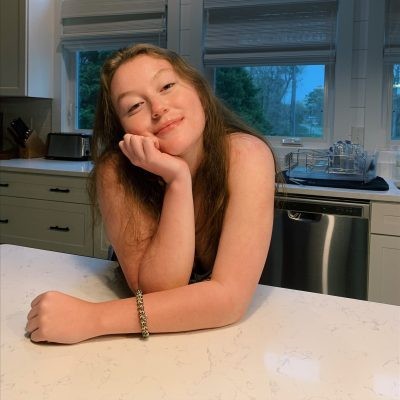
Ruby Ashman
How/Why Research? I got involved in research to gain a clearer understanding of what I want to do post grad and how my degree will help me get there. I enrolled in a research focused class here at UNC, and spoke with one of the researchers who presented about her research. She recommended a lab to me that aligned with my individual interests, and, after speaking to the PI, I began to volunteer.
Research Experience: Conducting research at UNC has turned me into a much more diligent and persistent student, as I have learned to thrive in a laboratory atmosphere where problem solving within a team and time management are essential skills. My research investigates MDMA and it’s prosocial effects as a baseline for the development of similar therapeutic drugs, which could alleviate the antisocial effects of a variety of neurological conditions.
Student Organizations/Clubs: Alpha Phi Omega, Zeta Tau Alpha
Also Happy to Chat about: Emailing Professors, Talking with Professors, Fitting Research into a Busy Schedule
Random Fun Fact: I’ve never lost a water bottle.
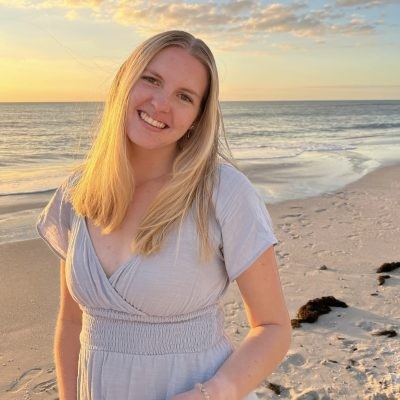
Sarah Albert
How/Why Research? I got involved in research because it is a great way to take what you learn in the classroom and see it applied in the real-world. I also love the problem-solving aspect of research. I have gotten both of my lab positions by cold-emailing PI’s of labs that I found by searching for labs at UNC that matched my specific interests and looking through departmental websites.
Research Experience: When I first started at the Rau Lab, I was doing computational work processing genetic data using R. I then moved to doing more wet lab work, specifically using fluorescent antibodies and microscopy to visualize different tissues in the heart. Through my research experience, I have learned many different techniques for collecting and processing data. I have also gained many soft skills such as perseverance, problem-solving, and collaborating with others. Through actively getting involved in research, I have been able to hone in on (and ended up changing) my interests and career path.
Student Organizations/Clubs: UNC Health Volunteers.
Also Happy to Chat about: Emailing Professors, Pre-Health Career Path, Fitting Research into a Busy Schedule.
Random Fun Fact: I’m a twin.
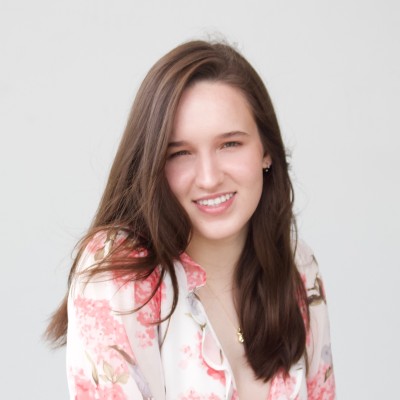
Sarah Broyhill
How/Why Research? I have a special interest in women’s reproductive health as a career path, so I looked specifically for UNC professors doing research on that topic. I emailed and met with a professor that was performing research I was interested in and asked to join his lab as a research assistant at the end of the meeting.
Research Experience: I perform various wet lab techniques, including PCR, cell culture, and cDNA synthesis, with the goal of determining new causes of infertility. Everything I do in the lab, I learned from my lab manager and my core biology classes.
Student Organizations/Clubs: ACERIP, HeartSafe
Also Happy to Chat about:“imposter syndrome”
Random Fun Fact: I have my cosmetology license!
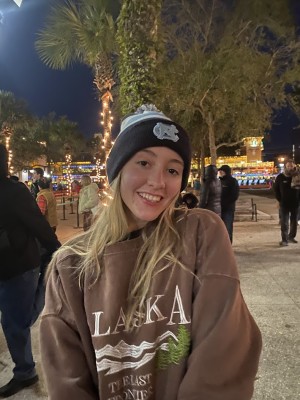
Shani Inbari
How/Why Research? I knew coming into college that I wanted to get involved in a very interdisciplinary field because I was not entirely sure of the path I wanted to take at Carolina. My lab, the Axtman lab, fits perfectly into that because it has aspects of neuroscience, biology, and chemistry all intertwined, allowing me to see the different sides of their research pursuit. I did a lot of research on the BBSP (Biological and Biomedical Sciences Program) website until I found a few labs that I was interested in. From there, I emailed professors (both in graduate and undergraduate school) until eventually I received an email back, inviting me to meet with them and eventually join their group.
Research Experience: In my lab, I study the application of chemical probes on cell-based assays and the effect of these chemicals on the cells’ viability and signaling, which can be later utilized to optimize drug production and find cures for different diseases like Alzheimer’s Disease or ALS. This process is teaching me a lot about this specific topic but also the overall scientific method and how research looks in a professional setting (something very different than what I thought it would look like initially).
Student Organizations/Clubs: Alpha Epsilon Delta (pre-health society), Sigma Rho Lambda (Jewish-interest Sorority)
Also Happy to Chat about: Emailing/talking to PIs, fitting research into a busy schedule, research for credit, finding research opportunities, gene therapy
Random Fun Fact: I can do a front walkover!
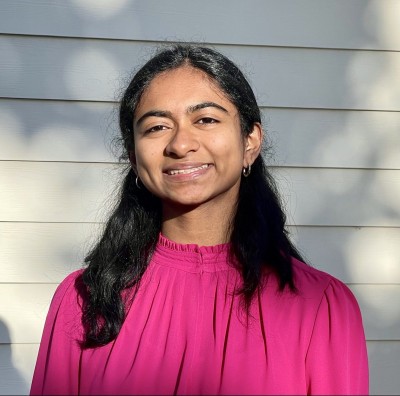
Sneha Jaikumar
How/Why Research? Coming into Carolina, there were many things I wasn’t sure about, but having been exposed to research in high school, I knew that I wanted to pursue research in a field I was deeply passionate about. While finding opportunities amid COVID-19 and virtual classes was hard, booking 1:1’s with OUR and following their resources on cold emailing really helped me land a research opportunity right in my field of interest.
Research Experience: Currently, I work at the CompCy Lab, where I’m able to combine my personal interests with existing technical knowledge while constantly learning more about machine learning techniques in the field of computational medicine. At my lab, I’ve worked with identifying patterns in single cell cancer datasets through various machine learning and clustering techniques. Ultimately, this research can be used to create a diagnostic test for how the immune system is impacted when someone has cancer. This information could even be used to make the immune system more resistant to disease down the line. During my time at the CompCy Lab, I’ve also performed similar machine learning techniques on single-cell data from pregnancy datasets, which can be used to predict when a woman might go into labor by identifying predictive biomarkers.
Student Organizations/Clubs: CADS (Carolina Analytics and Data Science), AI @ UNC
Also Happy to Chat about: Obtaining Opportunities as an International Student, Navigating Unpaid vs Paid Opportunities
Random Fun Fact: I spent Spring 2023 studying abroad in Singapore and did research there too!
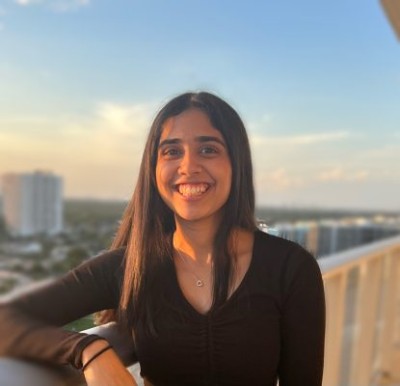
Sophia Dhrolia
How/Why Research? After loving the research I did in high school, I started cold-emailing PIs of labs that I was interested in as soon as I got to UNC. Being heavily involved in EMS before starting undergrad, I knew that I wanted to deepen my understanding on how pathological processes manifested at the cellular level to understand the broader effects of what was happening to my patients. Using the BBSP database, I found labs interested in hematology and I was able to quickly accept a position in my current lab.
Research Experience: In my lab I study the intrinsic pathway of coagulation, specifically on the various effects of C1 esterase inhibitor deficiency (C1INH) on various parts of the cascade. I am currently working on an independent research project to investigate the role of FXI(a) in thrombin generation during hemostasis. I developed an assay that accurately measures FXIa-C1INH complex levels in plasma samples and determined the ideal environment to measure FXIa activity so I can now test activity in various conditions. Through this experience, I have been able to transition from simply carrying out experiments in the lab to asking questions that I can design and execute experiments to answer. This has really helped me in my goal of understanding some more complex pathophysiologies while developing familiarity with more research methods.
Student Organizations/Clubs: UNC Campus EMS, HeartSafe, Phi Delta Epsilon
Also Happy to Chat about: Emailing Professors, Pre-Health Career Path, Talking with Professors, Networking, Fitting Research into a Busy Schedule
Random Fun Fact: I managed an ice cream store before starting undergrad and am obsessed with all things ice cream!
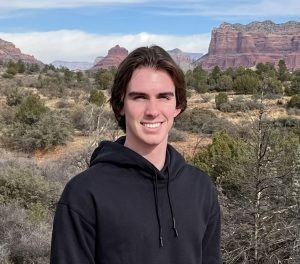
Steven Nuzzolo
How/Why Research? I chose to take advantage of the research opportunities offered at UNC because I wanted to gain more from my education outside of my classes; research provided an avenue to explore in greater detail the topics I’ve grown curious about. Finding the right lab at UNC can be challenging, especially given the breadth of research conducted across departments of the humanities and social sciences to the natural, physical, and life sciences. However, identifying my interest in chemistry and pharmaceuticals led naturally to my application to several labs within the Eshelman School of Pharmacy, simplifying the process. Contacting professors and other investigators via email to express interest in their work is important, so I’d recommend doing so!
Research Experience: My research experience involves hands-on, analytical, and methodological applications of the chemical sciences, which I’ve found to be the right fit given my interest in related coursework. Additionally, my work environment, enhanced by intelligent, creative, and unique researchers, has greatly influenced my view of the research behind the pharmaceutical industry and contributes to my curiosity for the pharmaceutical sciences.
Student Organizations/Clubs: University of North Carolina at Chapel Hill.
Also Happy to Chat about: I’m open to talk about non-major research initiatives, such as those involving different disciplines and schools across campus.
Random Fun Fact: I have an identical twin who goes to Duke!
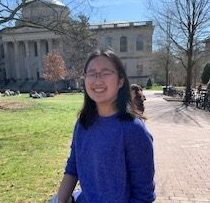
Tiffanie Lee
How/Why Research? Before I got involved in research, I talked with a lot of older students to learn about their experiences with scientific research at Carolina and attended OUR’s “Getting Involved in Research” workshop in order to determine how my experience could look. After thinking about my research interests and potential career paths, I used the BBSP faculty database to come up with a list of specific labs, and after reading into their research and talking with current undergrads in their labs, I sent the PI an email expressing my interest. I am excited about research because it’s a way to investigate my own questions and improve the world.
Research Experience: I was lucky enough to start conducting genetics and bioengineering research in high school at NC State and through a program with the Boz Institute and UCSD. During my first year, I worked in the Strahl lab in the School of Medicine. The Strahl Lab investigates how post-translational histone modifications cause changes in gene regulation, which can lead to the development of human diseases, such as cancer. My project through the UNC SMART program looked at the binding specificities of ASH1L, a histone reader and methyl transferase that has been implicated in mixed lineage leukemias, which commonly affect children and are often acute and treatment-resistant. Somewhere in between, I realized that neuroscience research was so much more exciting and a better fit for my interests in both science and engineering. I currently work in the Shih Lab in the Department of Neurology. The Shih Lab combines multimodal MRI with cutting edge neuroscience tools to study neural circuitry and neurovascular coupling in rodent models. My project attempts to develop and integrate an ECoG recording system with these tools to investigate the underlying mechanisms of functional brain networks and their contributions to different cognitive processes and brain states. This summer, I will be working in the Pedram Lab at HHMI’s Janelia Research Campus. The Pedram Lab develops tools rooted in chemical biology, protein engineering, and microscopy that utilize the distribution of glycans on cell surfaces to further understanding of cellular functioning and pathology. My project will be visualizing the extracellular matrix in the brain.
Student Organizations/Clubs:UNC FEMMES, AMWA (undergraduates), working as a Resident Advisor, Buckley Public Service Scholars, Chancellor’s Science Scholars
Random Fun Fact:I have run or walked through almost every path or unlocked building on campus. They give away maps at UNC Student Stores, but you can also ask me.
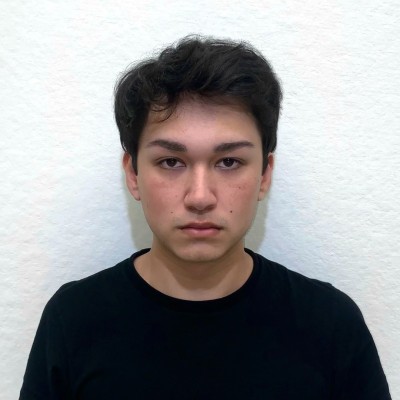
Timothy Anderson
How/Why Research? I got involved with research because I was unsatisfied with the harsh division between art history and art practice. I wanted to bridge this gap and locate common ground by using art history as an informative framework and constructive lens through which to better understand and execute art practice. I was able to get involved by talking with professors in both disciplines, as well as using what I learned in both fields to develop an interdisciplinary methodology of research in art.
Research Experience: I am a Southern Futures fellow at the Center for the Study of the American South developing a multimedia exhibition conceptually focused on the relationship between symbols, lived realities, and the natural environment within the context of the American South. I am also a McNair Scholar researching strategies and implications of performance art pedagogy.
Student Organizations/Clubs: Studio Art Majors Association, SAMple Gallery
Random Fun Fact: I’m really bad at math.
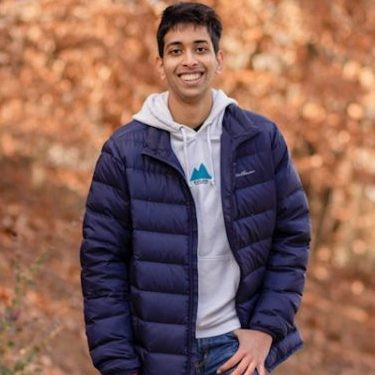
Vishal Easwar
How/Why Research? Before entering college, I knew I wanted to get into research, but I also didn’t fully understand the broad scope of the topics professors here were addressing. During my freshman year, I began my search by looking at the Department of Psychology and Neuroscience faculty website, narrowing down which labs seemed to best align with my interests. This helped me gain an appreciation for the types of research I could conduct, and by subsequently being fortunate enough to join a lab, I built the foundational skills I continue to use today.
Research Experience: In my freshman year, I was a research assistant in Dr. Kurt Gray’s Deepest Beliefs Lab, where I analyzed trends in supernatural attributions in cross-cultural ethnographic records, and with Dr. Brenna Maddox and Dr. Clare Harrop during my sophomore year, I studied biomarkers of suicide risk in female autistic adolescents. I am currently in the CLICK Lab with Dr. Jeffrey Greene studying the relationship between socioeconomic status and beliefs of intelligence in students and teachers. In spring 2023, I was a Karen M. Gil Intern at the Neuro Image Research and Analysis Laboratories (NIRAL), where I conducted quality control and data analysis in R of infant MRI data, and I will remain in the lab in fall 2023. I am excited to use these experiences to take a neuroimaging and affective psychology approach to learning sciences in future studies.
Student Organizations/Clubs: Psi Chi, Circle K, Sangam
Also Happy to Chat about: Emailing Professors, Talking with Professors, Networking, Fitting Research into a Busy Schedule, Finding research opportunities
Random Fun Fact: I once wrote a fifty-page fiction short story as a kid!
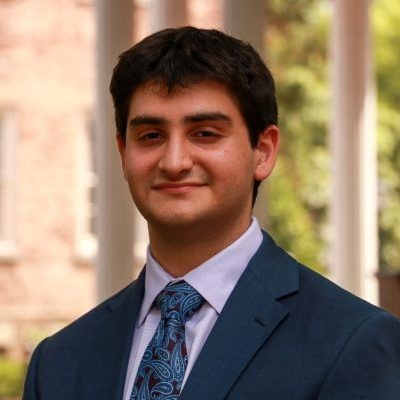
Zane Alsebai
How/Why Research? My interest in research began during high school, when I worked at my local university researching chemistry-based water purification. Coming to UNC, I was eager to build upon this experience by joining a research lab that worked on water purification processes. I began looking into research groups in different departments, including the Chemistry, Applied Physical Sciences, and Environmental Sciences & Engineering Departments, and emailed a few Principle Investigators before choosing my current group. During this process, I thought about the type of mentorship I would be receiving, the lab environment, and my long-term goals in research, all of which I hope to help students navigate as an OUR Ambassador.
Research Experience: My past research experience involved transforming waste cigarette filters into water purifiers for textile dyes found in wastewater. My current research involves modifying commercial water filtration membranes to optimize their removal of arsenic from water. Both of these projects aim to remove pollutants from water, helping ensure that everyone has access to clean water.
Student Organizations/Clubs: Arab Student Organization, Muslim Students Association
Also Happy to Chat about: Emailing Professors, Talking with Professors, Fitting Research into a Busy Schedule
Random Fun Fact: My favorite artist is Alice Neel.
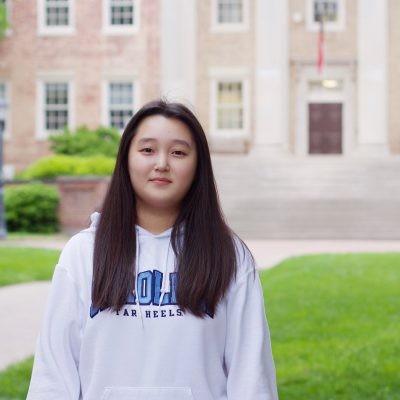
Zhihan Gao
How/Why Research? After I decided to study Biology, I realized that doing research could be one of my career pathways. When I tried to find a lab that studies the field I am interested in, I asked several friends for some useful advice. Besides that, I also made an appointment with one of the OUR student ambassadors. From that, I learned about how to get involved in doing research by taking classes, how to find interested labs from the database website, how to write emails to PIs with appropriate language, and how to talk and ask questions to PIs during interviews… Later, I started searching for my interested labs from the BBSP website and emailed PIs. Fortunately, I got an opportunity to be interviewed and joined the lab later.
Research Experience: I worked in Alan Jones Lab as an unpaid intern in my first year. In the lab, I learned a lot of techniques and skills that will be mostly used in a plant lab, including screening Arabidopsis transgene via herbicide spray and transferring Arabidopsis and tobacco seedlings from sterile plates to soil with well-spaced growth conditions. Later, I joined Jill Dowen lab which investigates the relationship between genome organization and gene regulation. I haven taken one semester of BIOL395 in my sophomore year. In the lab, I practiced lots of molecular biology techniques, including culturing cells, extracting RNA and making cDNA library from it, performing PCRs, cloning, and transformation.
Student Organizations/Clubs: Biology Ambassadors Program at UNC-Chapel Hill, Asian Health Advocacy Alliance
Also Happy to Chat about: Emailing Professors Talking with Professors, Networking, Fitting Research into a Busy Schedule, International Student Experience and Study Abroad
Random Fun Fact: I have a very cute British Shorthair cat!
Interested in becoming an Ambassador? Click here.